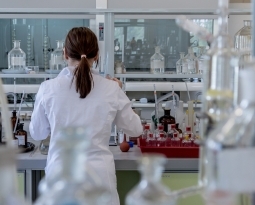Mobility and disability are no longer mutually exclusive thanks to Go Baby Go
“Ever since he was a baby, we’ve always said we want him to be the same as anyone else, he is no different,” Brenda Fernandez said of her son Abel Salazar. “We never told him you can’t do it.” Abel, 4 years old, was born without fully formed bones in his body, making mobility and other functions difficult. Last month, engineering math students from Victoria West High School in Texas retrofitted a battery-powered miniature red jeep as part of the Go Baby Go program and soon, Abel was on the move.
Brenda said, “He was scared at first, then he saw the Captain America sign and his face turned into a big huge smile. After that, he got on [the car].” Abel is part of the Preschool Program for Children with Disabilities where therapy and specialized programs help him develop cognitive, social, and mobility skills. By learning to drive the electric jeep, Abel is more likely to be a candidate for a mobility chair in the future. “The ultimate goal is independence,” said Amanda Kern, occupational therapist.
Last September, the engineering math students from Victoria High School began making adjustments to the red jeep which required testing and re-testing. Upgrades included modifying and stabilizing the seat’s position and rewiring the foot accelerator to the steering wheel. Safety features like a five-point strap belt were also added and the electrical work had to be rewired. The students said that the project gave them a real world look into math and engineering, and that the project was more fun than work.
Abel’s red jeep project was part of Go Baby Go, a nationwide program that modifies off-the-shelf battery operated toy cars to make them accessible for children with disabilities. The program’s founder had identified a gap in the market, particularly that mobility devices for young children were non-existent while adult motorized wheelchairs cost upwards of $17,000. In comparison, by modifying existing battery operated toy cars, the total cost is only around $200. The Go Baby Go program offers children with disabilities to develop independent mobility, cognition, coordination, balance, social, and other skills.
As Abel drove the red jeep throughout the halls of Dudley Elementary School and honked the horn, he smiled. “There’s no better feeling than seeing your son smile,” Brenda stated.
Are you working on experiments to retrofit existing off-the-shelf products and make them accessible for people with disabilities? Did you know your experiments could be eligible for the R&D Tax Credit and you can receive up to 14% on your expenses? To find out more, please contact a Swanson Reed R&D Specialist today or check out our free online eligibility test.
Who We Are:
Swanson Reed is Texas’ largest Specialist R&D tax advisory firm, offering tax credibility assessments, claim preparation, and advisory services. We manage all facets of the R&D tax credit program in Texas, from claim prep & audit compliance to claim disputes.
Swanson Reed regularly hosts free webinars and provides free IRS CE and CPE credits for CPA’s. For more information please visit us at www.swansonreed.com/webinars or contact your usual Swanson Reed representative

















